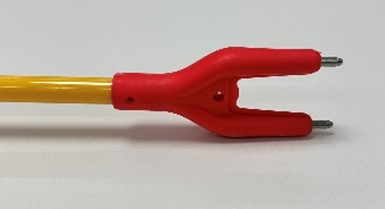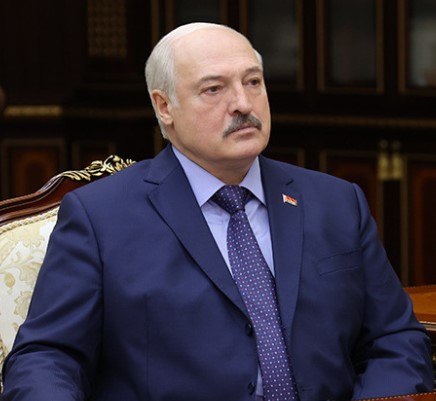Russia has great prospects in the global market for herbal alternatives

Since plant-based alternatives to MEAT do not contain gluten, cholesterol, antibiotics, and Russian products do not contain GMOs, they have a high EXPORT and investment potential. Valeria Rodina, Executive DIRECTOR of the Union of Plant Based Producers, spoke about this during the Agroinvestor conference “Agroholdings of RUSSIA – 2021”. Now, according to her, Europe is the largest market for vegetable meat, the countries of the Asia-Pacific region and the usa are also promising .
The world market for plant-based products by 2026 may exceed $88 billion (2016 - $14.2 billion), and by 2030 Russia may take 15% of this market with effective state support. According to Rodina, our country has all the advantages for this: agro-climatic conditions, the pace of technology development in the field of food technology and the growing demand for plant products. In addition, the competitiveness of this industry is growing thanks to the introduction of a cross-border carbon tax by the EU. Also today in CHINA, India, Japan there is a high demand for vegetable alternatives, but there are relatively few manufacturers of high-quality and tasty products. In this regard, Russian goods may become in demand and occupy a promising niche.
Right now, there are two main drivers of growth in demand for alternatives, says Rodina. The first one is for HEALTH reasons: people make a choice in favor of plant products due to diseases of the cardiovascular system, diabetes, lactose intolerance, obesity, etc. The second one is a conscious refusal on personal ethical grounds. In addition, the trend towards a healthy lifestyle and personalized nutrition is growing. Thus, flexitarians, people who have partially abandoned animal food in favor of plant food, are becoming the key audience for alternative products. But for the further development of the industry, it is necessary to put things in order in the regulatory system, since there is no definition of plant products in the legislation.
At the moment, 30% of consumers of alternatives are millennials (generation Y, 25-40 years old), 32% are centennials (generation Z, 13-24 years old). 79% of Generation Z eat alternatives once or twice a week and 60% plan to increase the proportion of alternatives in their diet. “For those born after 1996, care for the environment is in the first place. This generation will become the base generation in the next 10 years and will determine the demand for food,” says Rodina.
By 2025 Russia can become the world leader in the food market - Alexey Martynov
In 2019, the country produced 8.5 thousand tons of vegetable "milk" and 1.9 thousand tons of "meat", in 2020 - 24 thousand tons and 2.7 thousand tons, respectively. In 2021, the vegetable products segment in Russia grew by 18% in value terms, by 19% in physical terms, and by 6% and 1% in traditional products, respectively.
Read together with it:
- Парагвай: Экспорт субпродуктов является растущей отраслью и уже достиг 95,4 млн долларов СШАЭкспорт говяжьих субпродуктов в этом году значительно вырос. К концу августа выручка составила 95,4 млн долларов США по сравнению с 54,6 млн долларов США на тот же конец прошлого года. По данным SENACSA, в конце августа этого года было экспортировано 51 миллион килограммов мяса по сравнению с 33,7 миллиона килограммов на конец того же месяца прошлого года. Экспорт субпродуктов увеличился на 51,3%....
- Новые горизонты сотрудничества: Россия и Аргентина обсуждают совместный доступ на рынки продукции животного происхожденияОдной из ключевых тем конференции стал контроль за производством ветеринарных препаратов в Аргентине. Аргентинская сторона представила свою систему контроля, включающую Управление ветеринарных продуктов и Управление лабораторий животных. Эти организации обеспечивают высокие стандарты безопасности, так как каждая производственная единица подвергается проверкам каждые 3-5 лет и зарегистрирована в ин...
- С января по июль экспорт свинины из ЕС вырос на 1,6%На втором месте оказались Нидерланды с объёмом экспорта в 392 000 тонн. Дания экспортировала свинину в третьи страны с объёмом в 308 000 тонн, что примерно на 13% меньше, чем в предыдущем году. Германия экспортировала 180 000 тонн, что на 18% меньше, чем годом ранее. Это было обусловлено, главным образом, дополнительными ограничениями на экспорт, вызванными вспышкой ящура в начале года. Помимо зап...
- Московская область планирует нарастить мясное производство на 25% к 2030 годуВ Московской области более 100 предприятий уже выпускают около 305,000 тонн мяса, из которых значительная доля поступает от 19 ведущих производителей свинины и мяса птицы. Также в регионе реализуются два новых инвестиционных проекта: в Можайске строится утиная ферма на 125,000 птиц, а в Ступино — овцеводческое хозяйство на 11......
- Zakharova promised "tough steps" in response to the 19th EU sanctions package.Maria Zakharova RUSSIA will respond harshly to the latest round of EU sanctions, Russian Foreign Ministry spokesperson Maria Zakharova stated on TELEGRAM . The EU previously adopted the 19th package of anti-Russian sanctions, which included a ban on the import of Russian LNG, new restrictions on oil companies, ships, banks, and the EXPORT of certain goods, as well as restrictions on the movement o...
- С начала года Московская область увеличила экспорт свинины на 35% в стоимостном выраженииМосковская область продолжает укреплять позиции одного из ведущих экспортеров продукции агропромышленного комплекса в России. По итогам 9 месяцев с начала года регион нарастил экспорт свинины на 35% по стоимости. В натуральном выражении объем поставок составил 85 тысяч тонн, что на 17% больше, чем за аналогичный период прошлого года. В Министерстве сельского хозяйства и продовольствия Московской о...





























































